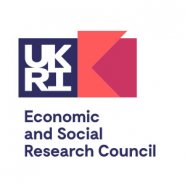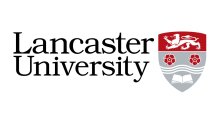
Beyond “do no harm": Applying feminist and decolonial approaches to research impact through participatory arts practice
Start date
September 2022End date
March 2023Overview
Research at the University of Surrey relating to “Queering Shelter” is advancing understandings of ‘shelter’ by exploring a context where it is often missing in LGBTQ+ lives. LGBTQ+ people’s experiences and understandings of shelter and shelterlessness (broadly defined to include homelessness, domestic abuse and other forms of avoidable harm) is explored.
When conducting social research of this nature, the foundational principle in academic research of ‘do no harm’ becomes especially pertinent, (in fact, ‘do no harm’ seems to be the very lowest bar to be aiming for). This project aims to go beyond ‘do no harm’ and to actively foster community benefit over the course of the research process, by means of participatory arts practice. It acknowledges, however, that the institution of academia, rooted in Western and patriarchal systems of power, is not always well-equipped to recognise the importance of community-embedded and art-based approaches.
Drawing on de-colonial and feminist principles, this project will deliver participatory arts activities that facilitate enjoyment, connection and meaning-making among community members – at each step of the way, not only at the final stages (tentatively termed ‘procedural impact’). The project will explore new ways of thinking about research impact appropriately recognising the real, though sometimes less ‘objectively tangible’, benefits of co-produced and creative practices in research, with a view to informing impact generation planning and assessment in future.
Team
Principle Investigator

Dr PJ Annand
Senior Research Fellow (Leverhulme)
Co-investigator

Dr Shakthi Nataraj
Lecturer in Sociology (Lancaster University)
Impact
It is anticipated that the creative sessions and final mural/art piece will foster a number of benefits for participants, including strengthened community relationships, enjoyment, and a sense of having participated in a project that ‘meant something’. It is also the intention for this creative output to inspire reflection on shelter, safety and safe(r) spaces among professionals working in service provision, policy and advocacy, as well as for local community members who see the artwork.
A co-authored paper, report or blog post providing actionable insights for other research teams and funding bodies wishing to explore decolonial and feminist approaches to impact will be produced. This will describe collective thinking on traditional understandings of impact that are rooted in colonial and patriarchal power dynamics, views on where and how such understandings may need to be challenged, and reflections on efforts to implement within this project. The expected outcome is to push forward the conversation and promote the practice of embedding decolonial and feminist approaches to research and impact which actively benefits communities at all stages of research implementation.
It is hoped that this pilot project has potential to be expanded across England and Wales, to enable continuing participatory arts engagement among a wide range of community members. The ambition in future is to develop a toolkit to support the work of research teams seeking to embed ‘procedural impact’ via co-production and creative arts practice. This toolkit would further support the work of funders, ethics panels and reviewers by developing a framework for incorporating and helping to recognise and reward, ‘procedural impact’ – which current conceptions of impact generation may not adequately account for.
Impact Acceleration Account awarded projects
Our projects are all playing their part in turning social science research outcomes into meaningful impact that will touch our lives and communities.
